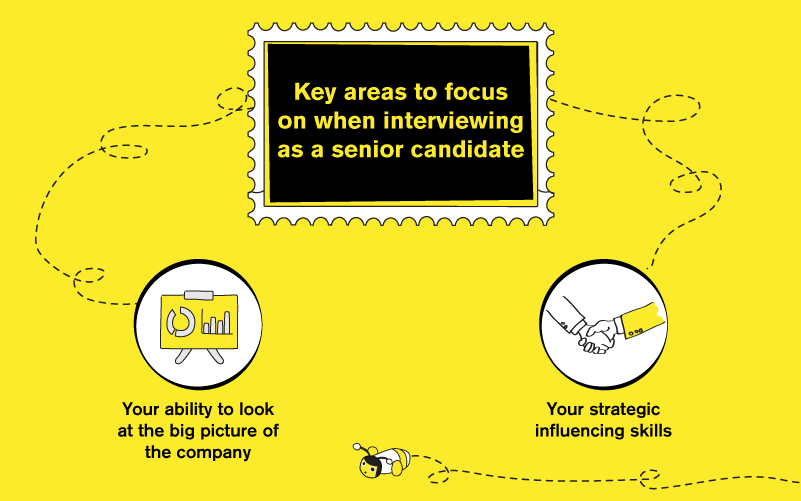Throughout my career as a recruiter, I’ve seen many senior-level professionals who impress employers with their skills and experience on paper but somehow struggle to carry this through to the interview. Interviewing as a senior candidate can be tricky – especially if you’ve been in your current position for some time. After all, interviewing is like a muscle, and if it has not been flexed in a while, you may find yourself falling a little short of today’s expectations.
That’s why it’s so essential that senior professionals know how to really sell themselves during the interview. The good news is, there are plenty of ways to refresh those interviewing skills. When it comes to interviewing for executive roles, here are some important things to keep in mind.
Prepare Your Executive Interview Answers
I’m sure I don’t have to tell you that good preparation is key for successful interviewing, but when it comes to presenting the complex career trajectories and diverse experience of senior professionals effectively to hiring panels, it’s even more essential.
Something I like to suggest is to utilise the people around you; ask your friends or family to put on a trial interview, where you can practise answering questions in a comfortable environment. Be aware of your enunciation, tone of voice and ability to build a rapport with the hiring panel. Research some common interview questions for your trial panel and write down a selection of possible answers so you can avoid repeating yourself and have a variety of examples ready to draw on.

At higher-level roles, your ability to influence others and effectively manage operations will be key. To answer these types of questions, look for impactful anecdotes from past positions – e.g. who did you influence and how? What was the scope and how did you achieve the desired outcome? Also, remember the sense of achievement and passion you felt during those times – interviewers are always glad to hear relevant stories from your past, and that enthusiasm will shine through in your answers.
Don’t Forget Your Soft Skills
As I have touched on in the previous point, executive-level roles depend on having effective people management skills. These ‘soft skills’ include the way you come across in the interview through to how well you work with others.
Although your experience will be important, hiring panels will be keen to understand your personality and how that could fit with the existing team. It may seem obvious, but remembering to be friendly and approachable, and building a good rapport is crucial.
Showcase Your Passion
As you become more and more senior, these higher-level jobs don’t come up as often, so it’s important to make a great impression for the opportunities that do come along. Analyse whether you really want the job, or is it just the title? The interview panel can always tell if you’re seeing the role as a career progression opportunity rather than being genuinely interested in the role and the organisation. Your experience and your skills are very important, but the panel will also be concentrating on your genuine desire to join their team. So, when the questions along the lines of “Why do you want this role?” come up, that is your chance to impress them.
The biggest thing I would like to stress above all else is to never let go of the passion you have for your career; this can be easy to do as you become more advanced, but it’s always good to treat every interview like it’s your first job. Motivation really matters. In fact, I have successfully placed a number of high-level roles with candidates who won the jobs because they had the right passion and great answers, even though some had a third of the experience of the other candidates.
While personal achievements are great, passion is what will set you apart from the other applicants!
Summary
At the end of the day, successfully interviewing as a senior candidate is about giving your career the representation it deserves and providing interviewers with the opportunity the recognise your true value as a professional.
If you’d like more executive interview advice or support with finding the right senior role for you, reach out to me today – I‘d love to help you identify the next step in your career.



.png)

